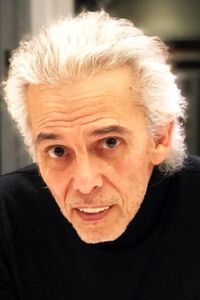Mario Rubén González Pierotti, known professionally as Jairo, is a renowned Argentine singer-songwriter and composer born on June 16, 1949, in Cruz del Eje.
His music career spans over five decades, with an impressive repertoire of more than 500 songs in Spanish, French, and Italian.
Some of his most popular and enduring songs include "Tu alma golondrina", "Por si tú quieres saber", "Tristezas", "De pronto sucedió", "El valle y el volcán", "Si vuelves será cansancio", "Amigos míos me enamoré", "Hoy dejó la ciudad", "Nos verán llegar", "Revólver", and "Me encanta esta hora del día".
Jairo's musical journey began at school, where he formed a band called "The Twisters Boys" and later adopted the name Marito González for his performances in local talent shows.
In 1970, he released his first single, which caught the attention of music producer Luis Aguilé, leading to a distribution agreement with CBS and a move to Spain.
Jairo's talent was soon recognized, winning the first Premio de la Crítica Española and second prize in the Festival of the Costa del Sol in 1971. He was subsequently signed by the Ariola label.
However, with the establishment of the National Reorganization Process in Argentina, Jairo chose to go into exile in Spain and later in France.
During his time in exile, he collaborated with renowned musicians, including Astor Piazzolla, with whom he recorded several songs composed by Piazzolla himself and Uruguayan poet Horacio Ferrer. Notable tracks from this period include "Milonga del trovador" and "Hay una niña en el alba".
Upon the end of the military dictatorship, Jairo returned to Argentina and performed a recital on Avenida 9 de Julio, drawing an audience of 1.2 million people, who sang along to his version of "We Shall Overcome".
Throughout his illustrious career, Jairo has shared the stage with iconic artists such as Ana Belén, Ariel Ramírez, Eladia Blázquez, Graciela Borges, Jaime Torres, Juan Carlos Baglietto, La Mona Jiménez, Lito Vitale, Mercedes Sosa, Pedro Aznar, Piero, and Víctor Heredia.















